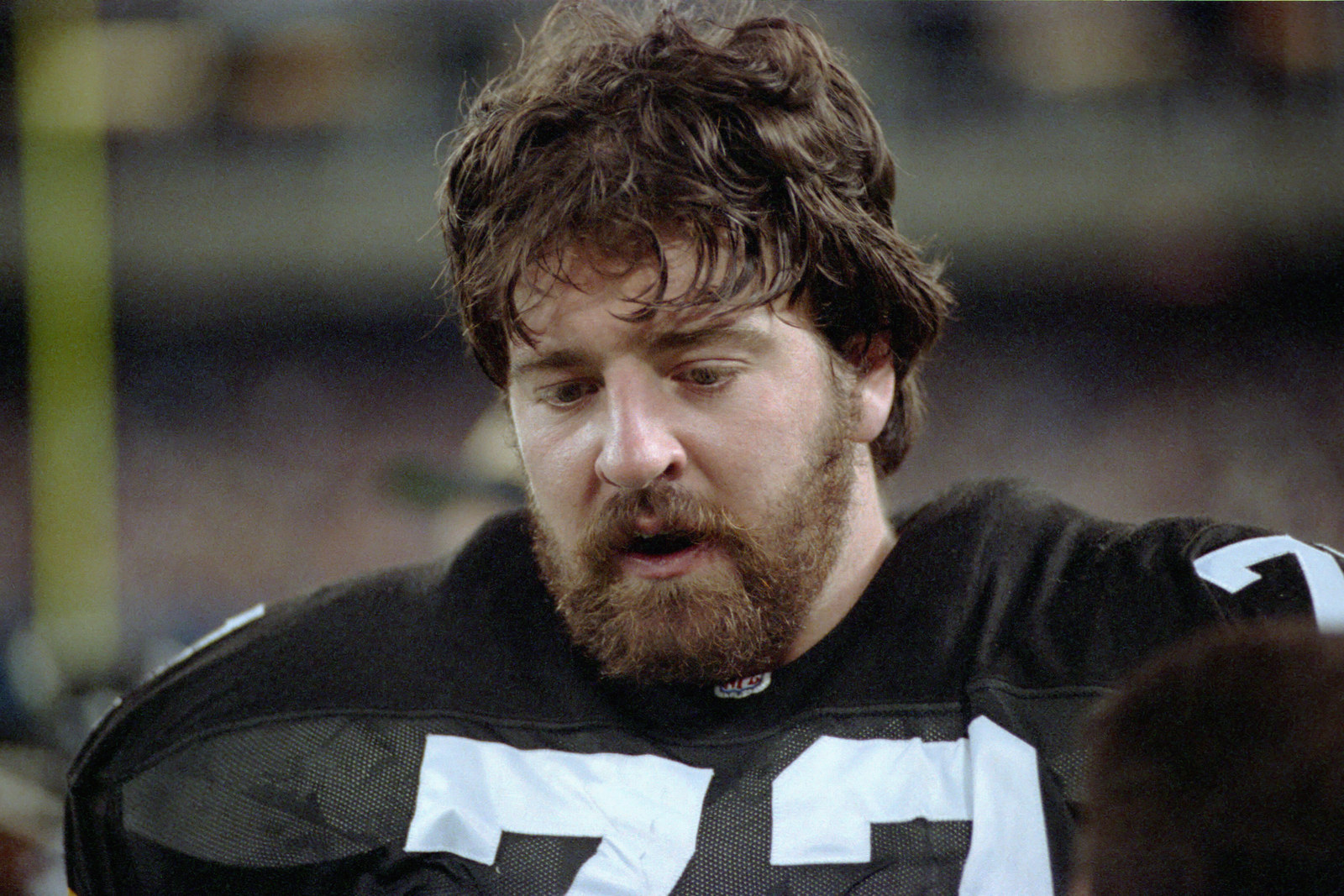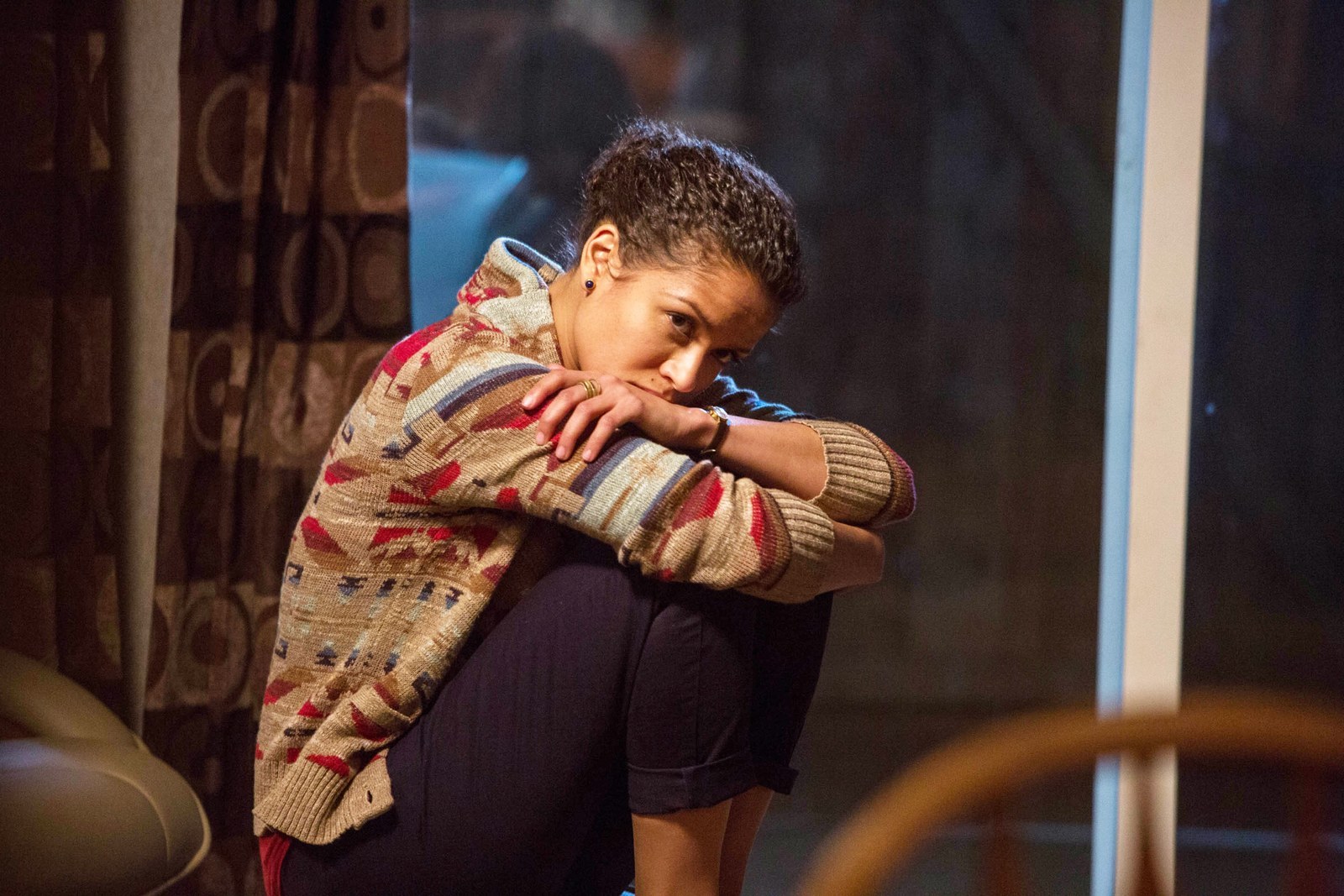In Concussion, Dr. Joe Maroon — the NFL’s Head, Neck, and Spine Committee concussion expert — says: “If only 10% of mothers in America begin to conceive of football as dangerous, that is the end of football.”
Women — who are mothers and wives of football players as well as dedicated fans — are at the center of the sport’s concussion crisis. Yet in Sony’s Concussion, released Friday, the stories of female characters are used mostly as tools to support the film’s David vs. Goliath narrative.

Based on a true story, Concussion stars Will Smith as Dr. Bennet Omalu, the neuropathologist who forced the NFL to confront the link between football and Chronic Traumatic Encephalopathy (CTE), a neurodegenerative brain disease believed to be caused by repetitive sub-concussive hits to the head. Symptoms “include memory loss, confusion, impaired judgment, impulse control problems, aggression, depression, anxiety, suicidality, parkinsonism, and, eventually, progressive dementia,” according to lead researchers at Boston University.
The film is powerful, and is likely to change the way many Americans engage with football. But wives and mothers of players suffering from CTE are shown only in passing or as a contrast to the NFL’s attempts to keep the link under wraps.
An hour into the film, former Steelers lineman Justin Strzelczyk is shown worked up in a rage at his home, the only player whose home life viewers see in Concussion. He smashes a framed Strzelczyk jersey and gets physically violent with his wife, Keana McMahon, in front of their children.

In the film, McMahon screams at him to get out — and is next shown hysterical in their driveway as Strzelczyk drives away in his truck to his eventual doom in a highway accident. (In real life, Strzelczyk died in 2004 while recklessly driving his car at 90 miles per hour the wrong way in traffic, though not right after an argument with his wife.)
McMahon told BuzzFeed News that Concussion’s director, Peter Landesman, consulted with her on her character and her husband’s life. “I think the only thing I changed in the script was Justin’s nickname,” McMahon said.

In reality, Strzelczyk was physically abusive with McMahon once, when he ripped an item of clothing off her in front of company. Knowing that her children would see the film — and Landesman’s depiction of their father hurting her — McMahon knew she would have to explain it to them. “What the director had to do was show the personality of five different men in one character,” she told BuzzFeed News she told her children. “I was lucky with your father, but there are other women that aren’t.”
“The biggest thing that stuck in my mind is that Sony can get this information out there on a level that I never could by myself,” McMahon told BuzzFeed News. “I’m coming at this issue as a mother. When I say mothers, I mean all mothers: If you’re a 55-year-old woman and your son plays professional football, you need to know this. I now get emails and text messages from women I knew 15 years ago that are going through what I went through with Justin. They tell me, ‘He’s abusive, he has a drug problem, we can’t pay the mortgage.’”
Her husband, she said, “was never diagnosed with one single concussion.” But she noticed a change in his personality when their daughter was born in 1997.

“The first thing I thought after he was diagnosed with CTE was: I have a why,” McMahon said. “I knew that even though my kids were small, they were gonna grow up, and I had an explanation for them. If we had just thought he had bipolar, my kids would have worried, and now they know they’re not at risk. So for me, the biggest relief was that I had a reason to sit down with the kids and tell them why this happened.”
McMahon offers this advice to the women who reach out to her: ““When you’re married to someone 6’6,’’ 300 pounds, you have no choice but to protect yourself.” She added, “Protect your children. God forbid if he would have picked up my children in that truck, they wouldn’t be here. It’s really about making people aware that something’s not right.”
“My biggest concern,” she said, “is the safety of the women and children.”
Prema Mutiso (Gugu Mbatha-Raw), the eventual wife of Dr. Omalu, speaks only about her husband’s life — her personal suffering is used as plot points to emphasize the NFL’s scare tactics. While she has the most prominent female role in the film, it’s largely flat. References to personal trauma — a vague “assault” and a miscarriage — are used as conflicts to heighten drama and progress the film plot.
In Concussion, Mutiso and Omalu begin as roommates — she is new to America and their pastor has asked Omalu to help her get on her feet. She serves largely as a sounding board for him to discuss, and therefore display, his research into the prevalence of CTE in football players. She watches football on his small living room television, which he admits he does not watch, but owns because “that’s what you do in this country.” Eventually, a romantic relationship between Mutiso and Omalu becomes a subplot.

After Omalu has discovered CTE in another player’s brain and published his findings in a scientific journal, he sits down with Mutiso along the Monongahela River in Pittsburgh. Omalu’s experience with the NFL’s intimidation tactics have soured his views of the dream of American prosperity. “I am the wrong person to have discovered this,” Omalu said.
Mbatha-Raw gets her largest speaking role in this scene — speaking vaguely of an “attack” that occurred shortly after she arrived in America, but quickly saying the details are “better left unsaid.” It was an opportunity to add complexity to her character that was portrayed instead as a hurdle she overcame — suggesting Omalu should overcome the NFL’s scare tactics.
As Mutiso and Omalu begin to build a life together, the intimidation from the NFL intensifies. Omalu receives hostile phone calls from NFL-affiliated doctors and fans. The culmination of this stress on the family is depicted as Mutiso suffering a miscarriage after being followed by an indistinct car. The pair weep in the hospital; in the scenes following the miscarriage, only Omalu’s emotions are given screen time. (A request to speak with Landesman about the use of a miscarriage in Concussion went unanswered.)
Concerned mothers are the concussion issue’s biggest watchdogs — women who have lost a partner or son to CTE-related deaths have formed highly active support groups that exist in email threads and on Twitter. These dedicated mothers keep some of the most comprehensive records of football and concussion–related deaths. (A spreadsheet called “Suicides and Football” was started this year to track football-related deaths of high school players.)
The film, though, uses women’s stories only for narrative convenience — instead of showing the damage CTE can wreak on a player’s home life. In doing so, Concussion misses engaging with a segment of the audience that could have the biggest impact on the NFL.
